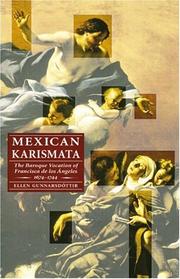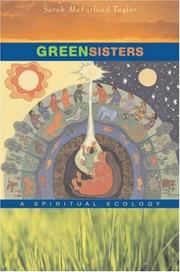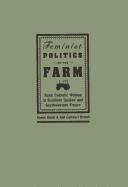| Listing 1 - 10 of 22 | << page >> |
Sort by
|
Book
ISBN: 1438448295 1461948177 9781461948179 9781438448732 1438448732 Year: 2013 Publisher: Albany, New York : State University of New York Press,
Abstract | Keywords | Export | Availability | Bookmark
 Loading...
Loading...Choose an application
- Reference Manager
- EndNote
- RefWorks (Direct export to RefWorks)
"A literary anthology exploring contemporary Catholic women's experiences"--Provided by publisher.
American literature --- Catholic women --- Women's writings, American --- Women, Catholic --- Christian women --- Catholic authors. --- Women authors.

ISBN: 9786610510122 0803271131 1280510129 0803204477 9780803204478 9781280510120 0803221991 9780803221994 9780803271135 6610510121 Year: 2004 Publisher: Lincoln University of Nebraska Press
Abstract | Keywords | Export | Availability | Bookmark
 Loading...
Loading...Choose an application
- Reference Manager
- EndNote
- RefWorks (Direct export to RefWorks)
Catholic women --- Catholics --- Christians --- Women, Catholic --- Christian women --- Angeles, Francisca de los, --- Los Angeles, Francisca de, --- De los Angeles, Francisca,
Book
ISBN: 077341150X 9780773411500 Year: 2011 Publisher: Lewiston
Abstract | Keywords | Export | Availability | Bookmark
 Loading...
Loading...Choose an application
- Reference Manager
- EndNote
- RefWorks (Direct export to RefWorks)
In a narrative that covers these women who shaped history from the colonial era down to the present day, the author focuses on those who were influential among the Native Americans as well as among the immigrants, including those of French, Irish, Italian, and other backgrounds who helped shape business, education, health care, and even religion itself. Of particular relevance were the Sisters of Mercy who did so much to develop hospitals, orphanages, and schools in the Pine Tree State.
Catholic women -- Maine -- Biography. --- Catholic women -- Maine. --- Maine -- Biography. --- Catholic women --- Religion --- Philosophy & Religion --- Christianity --- Women, Catholic --- Christian women --- Maine
Book
ISBN: 1609177533 Year: 1999 Publisher: East Lansing : Michigan State University,
Abstract | Keywords | Export | Availability | Bookmark
 Loading...
Loading...Choose an application
- Reference Manager
- EndNote
- RefWorks (Direct export to RefWorks)
Women in the Catholic Church --- Catholic women --- Feminist theology. --- Women, Catholic --- Christian women --- Theology, Feminist --- Theology, Doctrinal
Book
ISBN: 0813594944 0813594901 Year: 2019 Publisher: New Brunswick, NJ : Rutgers University Press,
Abstract | Keywords | Export | Availability | Bookmark
 Loading...
Loading...Choose an application
- Reference Manager
- EndNote
- RefWorks (Direct export to RefWorks)
Entering the academy at the dawn of the women's rights movement in the late 1960s and early 1970s, the first generation of feminist academics had a difficult journey. With few female role models, they had to forge their own path and prove that feminist scholarship was a legitimate enterprise. Later, when many of these scholars moved into administrative positions, hoping to reform the university system from within, they encountered entrenched hierarchies, bureaucracies, and old boys' networks that made it difficult to put their feminist principles into practice. In this compelling memoir, Mary Kay Thompson Tetreault describes how a Catholic girl from small-town Nebraska discovered her callings as a feminist, as an academic, and as a university administrator. She recounts her experiences at three very different schools: the small progressive Lewis & Clark College, the massive regional university of Cal State Fullerton, and the rapidly expanding Portland State University. Reflecting on both her accomplishments and challenges, she considers just how much second-wave feminism has transformed academia and how much reform is still needed. With remarkable candor and compassion, Thompson Tetreault provides an intimate personal look at an era when both women's lives and university culture changed for good.
Catholic women --- Feminists --- Women college administrators --- College administrators --- Women executives --- Women in higher education --- Women, Catholic --- Christian women --- Tetreault, Mary Kay Thompson.
Book
ISBN: 0773430288 9780773430280 9780773437876 0773437878 Year: 2010 Publisher: Lewiston Edwin Mellen Press
Abstract | Keywords | Export | Availability | Bookmark
 Loading...
Loading...Choose an application
- Reference Manager
- EndNote
- RefWorks (Direct export to RefWorks)
This study is unique in that it analyzes the attitudes of a female sample stratified according to religious tradition (Catholic/Protestant). The sample was also stratified by age (21-45/46-70 years) and location (rural/urban). Irish sociological, social psychological and feminist scholarship has produced diverse work concerning many facets of Irish women's lives, but little research has specifically focused on the attitudes of Irish Protestant and Catholic women as distinct groups.
Catholic women -- Ireland. --- Protestant women -- Ireland. --- Women -- Ireland. --- Women --- Protestant women --- Catholic women --- Gender & Ethnic Studies --- Social Sciences --- Gender Studies & Sexuality --- Christian women --- Human females --- Wimmin --- Woman --- Womon --- Womyn --- Females --- Human beings --- Femininity --- Women, Catholic
Book
ISBN: 029274854X 0292748531 Year: 2013 Volume: book thirty-two Publisher: Austin : University of Texas Press,
Abstract | Keywords | Export | Availability | Bookmark
 Loading...
Loading...Choose an application
- Reference Manager
- EndNote
- RefWorks (Direct export to RefWorks)
The Roman Catholic church played a dominant role in colonial Brazil, so that women’s lives in the colony were shaped and constrained by the Church’s ideals for pure women, as well as by parallel concepts in the Iberian honor code for women. Records left by Jesuit missionaries, Roman Catholic church officials, and Portuguese Inquisitors make clear that women’s daily lives and their opportunities for marriage, education, and religious practice were sharply circumscribed throughout the colonial period. Yet these same documents also provide evocative glimpses of the religious beliefs and practices that were especially cherished or independently developed by women for their own use, constituting a separate world for wives, mothers, concubines, nuns, and witches. Drawing on extensive original research in primary manuscript and printed sources from Brazilian libraries and archives, as well as secondary Brazilian historical works, Carole Myscofski proposes to write Brazilian women back into history, to understand how they lived their lives within the society created by the Portuguese imperial government and Luso-Catholic ecclesiastical institutions. Myscofski offers detailed explorations of the Catholic colonial views of the ideal woman, the patterns in women’s education, the religious views on marriage and sexuality, the history of women’s convents and retreat houses, and the development of magical practices among women in that era. One of the few wide-ranging histories of women in colonial Latin America, this book makes a crucial contribution to our knowledge of the early modern Atlantic World.
Catholic women --- Women and religion --- Women in the Catholic Church --- Women --- Religious life --- Brazil --- Church history --- Human females --- Wimmin --- Woman --- Womon --- Womyn --- Females --- Human beings --- Femininity --- Religion and women --- Women in religion --- Religion --- Sexism in religion --- Women, Catholic --- Christian women

ISBN: 1282071459 9786612071454 0253110718 9780253110718 9780253343161 025334316X 9781282071452 025334316X 6612071451 Year: 2003 Publisher: Bloomington Indiana University Press
Abstract | Keywords | Export | Availability | Bookmark
 Loading...
Loading...Choose an application
- Reference Manager
- EndNote
- RefWorks (Direct export to RefWorks)
The personal narratives of nine 20th-century Catholic female authors -- Monica Baldwin, Antonia White, Mary McCarthy, Mary Gordon, Mary Daly, Barbara Ferraro, Patricia Hussey, Karen Armstrong, and Patricia Hampl -- speak eloquently about the process of departure from the church and its institutions. This study explores each author's breaking of the taboo associated with women leaving their ""proper place."" It locates five themes at the heart of all of their narratives: reversal, boundary crossing, dia
Ex-nuns --- Ex-church members --- Catholic women --- Former nuns --- Nuns --- Apostates --- Church dropouts --- Church members, Fallen-away --- Church members, Lapsed --- Fallen-away church members --- Inactive church members --- Lapsed church members --- Non-church-affiliated people --- Women, Catholic --- Christian women --- Biography --- History and criticism. --- Catholic Church --- History and criticism

ISBN: 0674027108 9780674027107 0674034953 9780674034952 9780674034952 9780674024403 0674024400 0674267702 9780674267701 Year: 2007 Publisher: Cambridge Harvard University Press
Abstract | Keywords | Export | Availability | Bookmark
 Loading...
Loading...Choose an application
- Reference Manager
- EndNote
- RefWorks (Direct export to RefWorks)
Green sisters are environmentally active Catholic nuns working to heal the earth as they cultivate new forms of religious culture. Inviting us into their world, Taylor offers a firsthand understanding of the experiences of women whose lives bring together orthodoxy and activism, and whose lifestyle provides a compelling view of sustainable living.
Human ecology --- Catholic women --- Nuns --- Sisters (in religious orders, congregations, etc.) --- Christians --- Monasticism and religious orders for women --- Women, Catholic --- Christian women --- Religious aspects --- Catholic Church. --- Political activity. --- Religious studies --- Christian religion --- General ecology and biosociology --- Environmental protection. Environmental technology --- United States --- United States of America --- Catholic Church --- Climate --- Members of congregations --- Spirituality --- Book --- Ecology

ISBN: 1282857894 9786612857898 0773567666 9780773567665 0773518282 9780773518285 9781282857896 6612857897 Year: 1999 Publisher: Montreal
Abstract | Keywords | Export | Availability | Bookmark
 Loading...
Loading...Choose an application
- Reference Manager
- EndNote
- RefWorks (Direct export to RefWorks)
Feminist Politics on the Farm examines rural women's organizations, politics, feminism, agricultural life, and personal relations. The women studied were clearly progressive in their opinions and the authors show that their original and varied opinions cast doubt on much of the standard literature about non-elite women's understanding of mainstream politics and the women's movement. These rural women differed significantly from the usual stereotypes of farm women as apolitical and conservative. Nor were they the reactionaries implied by theories of modernization. Instead, they were supportive of women's political activism, and of their equality and self-assertiveness, and were as feminist as other women in Canada and France. Political scientist Naomi Black and historian Gail Cuthbert Brandt worked collaboratively, using a combination of qualitative and quantitative methods. Their study is in large part based on a lengthy questionnaire administered by local interviewers in 1988-89 to almost 400 women living on family farms near Bordeaux and Montreal. They also include analyses of the women's organizations to which half of the subjects belonged, Cercles defermières in Quebec and Groupements de développement et de vulgarisation agricole féminins in France. Throughout the book the authors reflect, in language accessible to the general reader, upon the advantages and disadvantages of using conventional quantitative approaches to explore women's experience and opinions.
Rural women --- Catholic women --- Feminism --- Women --- Emancipation of women --- Feminist movement --- Women's lib --- Women's liberation --- Women's liberation movement --- Women's movement --- Social movements --- Anti-feminism --- Women, Catholic --- Christian women --- Human females --- Wimmin --- Woman --- Womon --- Womyn --- Females --- Human beings --- Femininity --- Political activity --- Emancipation --- Femmes rurales --- Féminisme --- Femmes --- Activité politique
| Listing 1 - 10 of 22 | << page >> |
Sort by
|

 Search
Search Feedback
Feedback About UniCat
About UniCat  Help
Help News
News